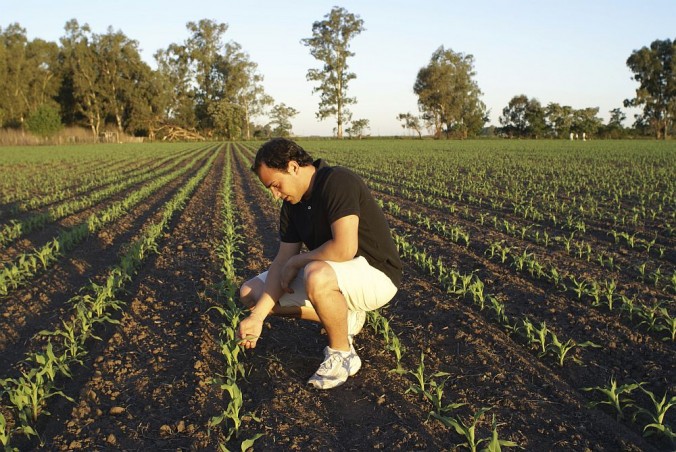
Do you need to rethink how you pay your employees? Remember, your competition is non-farm employment, so structure your pay scale accordingly.
As labor recruiters searching to fill agricultural positions across the U.S., our team discusses the right level of pay with employers on a daily basis. I've pretty much heard and seen it all when it comes to compensation practices -- the good, the bad, and the ugly. The best farms have a deliberate approach to their compensation structure, pay levels, and open communication between employer and employee, which in return voids the window for awkward questions. They analyze the "why" behind their pay decisions and structures while working to stay competitive in the market.
There are two questions to ask yourself: What is the reason behind paying each employee the way I am currently paying them; and how do my pay practices affect performance and productivity?
Compensation plans (as long as you are staying in compliance) do not have to be cookie cutter. One size does not fit for all positions or farms. This also stays true for each individual on your farm in the same position. Do not be shy about compensating your all-star accordingly.
Let's review common pay questions and dilemmas.
SHOULD I PAY A FARM OPERATOR SALARY OR HOURLY?
Hourly is typically the best structure for this type of role. It's safe to say that during peak season some operators may be the first ones on the farm in the morning and the last ones to go home at night. They want to feel accurately compensated for long hours, and paychecks should reflect the extra effort. This type of structure will be more motivating as they put in the longer hours during harvest.
I've heard concerns over employees "milking" the clock and employers have moved to salary pay, but a better approach would be to put in a system that reduces the opportunity for inaccurate time. There are phone apps that make time tracking easy, with daily approvals so managers can stay on top of time worked.
HOW OFTEN SHOULD I GIVE PAY RAISES?
If it's been more than two years since you have reviewed and given pay raises, it's time! Don't hesitate or question yourself about giving your employees the raises they have been patiently waiting for. Outside of agriculture, it is common practice to give raises annually, typically somewhere between 1%-2% above cost-of-living increases.
The mentality of the annual raise is slowly being replaced by the practice of aligning pay increases to increases in job responsibility and/or performance. I'm a big supporter of this approach. If you hired an operator at $15/hour and they worked their way into a field lead position playing an important part of your organization, pay should be adjusted as that responsibility has increased. Ask the question: If I was hiring for this exact role now, what would be a reasonable wage? Employees don't always speak up if they are underpaid and may begin to search for other opportunities. Don't lose a key player over poor practices.
HOW MUCH IS A COMPETITIVE WAGE?
Location, location, location! How competitive your wage truly is highly depends on your location along with local factors such as competitors in your area. For instance, if a large construction company swoops in and is continually hiring those all-star operators, do some digging on what is attracting that pool of qualified candidates to that company. What are they offering their operators?
There are also lots of online resources such as payscale.com. Strong agriculture compensation data is not as prevalent in the market; however, we are competing for talent and competing against ag candidates leaving to go into other industries for better wages. You're not necessarily up against your neighbor farmer for wages, you are up against other companies that have an interest in the same type of talent. We need to be savvy about what those other industries are paying.
SHOULD I GIVE BONUSES?
The best approach is a well-designed incentive pay structure supporting the behavior(s) that successfully drive your business and incentive pay earned by employees. There is nothing more detrimental than an undefined bonus structure; communication is key here. Lack of communication can leave employees at some point disappointed when the payout is not there or lower than expected.
If they get a strong bonus, is it really a motivator of performance? I see many farms fall into the trap of thinking, "it's a good season" and giving a discretionary bonus, and if it's a bad season, they don't. Does that increase the productivity of employees or change future behavior to better impact the business? I would argue that it doesn't. Given our tight times in agriculture right now, pay increases might not be an option. However, you could opt for implementing an incentive pay program. We have worked with an ag operation in Colorado that implemented an incentive program rewarding their Service Technicians for minimizing a second trip to a customer site within "X" amount of days of the initial service call.
DO I NEED TO PAY OVERTIME FOR THE OFFICE?
Overtime rules are regulated by the Fair Labor Standards Act (FLSA). With the new changes effective this coming December, farms need to take a good look at their pay practices for positions that are not directly doing work on the farm. Office administrators, bookkeepers, custom applicators, etc. will need to follow the overtime compliance. (For details, see click here).
Although farms are not required to pay overtime for their operators and technicians working directly on the farm, some farms are choosing to pay overtime on their own. A large grain farm in Indiana pays OT for farm employees as they feel it keeps them competitive when hiring and attracting talent. I have another farm that pays OT for hours over 12 in a day to reward the late-night hours of harvest. Even if your workers are exempt, look at pay practices that might align well with motivating your team to hang in there on long days and perform to their highest standards.
Harvest and plant are busy seasons, but take some time once at year-end to review how you are paying each employee. Evaluate if your pay structures truly support productivity and align with where you are taking your business.
Lori Culler, Founder of AgHires, lori@aghires.com





